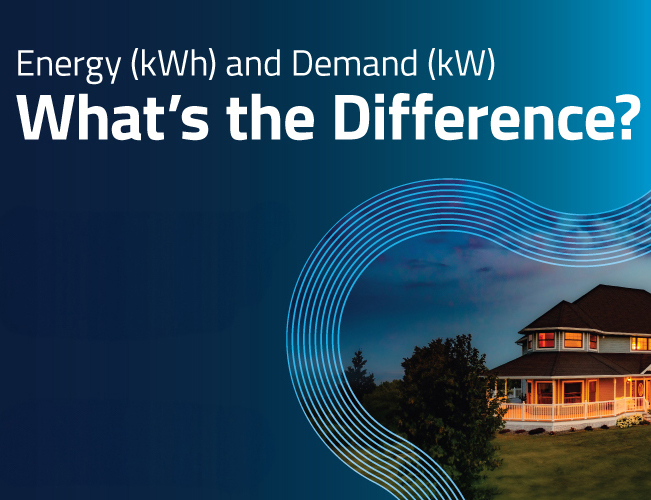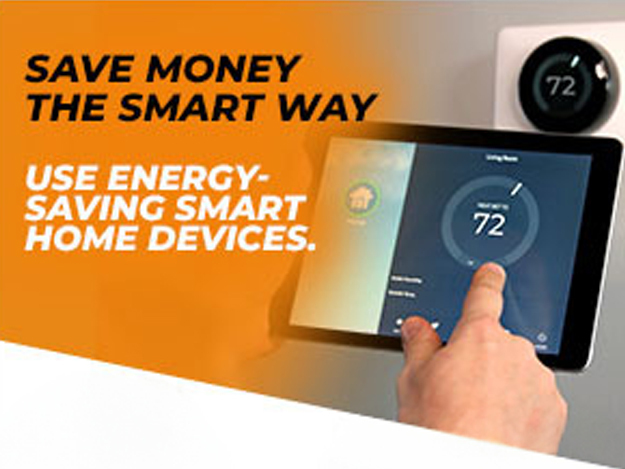What uses the most energy in my home?
Heating and cooling systems typically consume the most energy in your home, followed closely by refrigerators and clothes dryers. But don't underestimate the power of small electronics. Televisions, computers, chargers and answering machines still draw electricity even if they are turned off or on standby mode. According to ENERGY STAR®, idle electronics consume the same amount of energy as the output of 17 power plants in the United States every year.
If I turn my heat down when I'm not home, won't I use more energy heating the house back up when I return?
This is a popular one. Does turning the heat down during a typical, eight-hour work day really save that much energy? The answer is yes. Turning your heat down a few degrees during the day will cut down the number of heating cycles your system runs. The money and energy you will save during those eight hours will be more than you’ll use when you turn the thermostat back up.
How do I know if I need to add more insulation to my home?
If you live in a relatively new home, chances are you have adequate insulation. If your home is 20 years old or more, adding insulation will help reduce your heating and cooling costs. A certified energy auditor can help determine if you need more insulation, or you can inspect your home yourself.
To inspect it yourself, first look at exposed areas adjacent to unheated spaces like the attic, garage or basement. This is an easy place to see how thick the insulation is in your home. You can also inspect insulation by removing an electrical outlet cover (make sure you turn off the electricity first) and shining a flashlight behind the wall. Pull out a small amount of insulation to inspect its thickness. Make sure you check in other floors/walls as well; you may have good insulation in some places and inadequate amounts in others.
Do I need to add insulation to basements and crawl spaces?
Most people don't think to insulate crawl spaces and unfinished basements because they’re unoccupied. But just because we don’t utilize them doesn’t mean they aren’t leaking energy. An un-insulated foundation can result in significant heat loss, so it’s always a good idea to insulate.
How does landscaping my yard improve energy efficiency?
A well-landscaped yard can add to your curb appeal and home value, and lower your energy bill. Planting trees can shade your home from hot sun and cut down on cooling costs; planting rows of trees or shrubs can act as windbreaks, helping reduce your heating costs during the winter.
When should I replace my hot water heater?
Most hot water heaters are built to last 10-15 years. But it’s a good idea to start shopping if your water heater is over seven years old. Waiting until your current water heater fails will force you to make a quick decision, and you may not end up purchasing a water heater that best fits your needs.
When should I replace my furnace?
Home furnaces usually last 13-20 years. Even though some may last longer, they typically become less energy efficient as they age. Make sure to replace furnace filters on a monthly basis for optimum efficiency. If your furnace is on its last leg, consider switching to an energy efficient electric heat pump.
What is an electric heat pump and how can it save money?
A heat pump is a system that handles both the cooling and heating of your home by using refrigeration equipment to bring warm air into the home in the winter and cool air in the summer. Though a heat pump may initially cost more than a typical furnace, it will not only heat your house, but cool it as well. A heat pump’s greatest savings occur during the heating season, as pumps can provide nearly two times more heat than energy used.
What does the ENERGY STAR® label mean?
ENERGY STAR® labeled products are more energy efficient than others and can save you money on your utility bill. In general, ENERGY STAR® appliances, electronics and building materials can reduce energy costs by at least 30 percent. Learn more about ENERGY STAR® products.
How much of the energy I use comes from renewable resources?
Your local Touchstone Energy® Cooperative is exploring wind power and hydroelectric energy sources to fulfill our energy needs into the future. Currently, our Touchstone Energy® member-owners receive nearly 30 percent of their energy from renewable resources.



